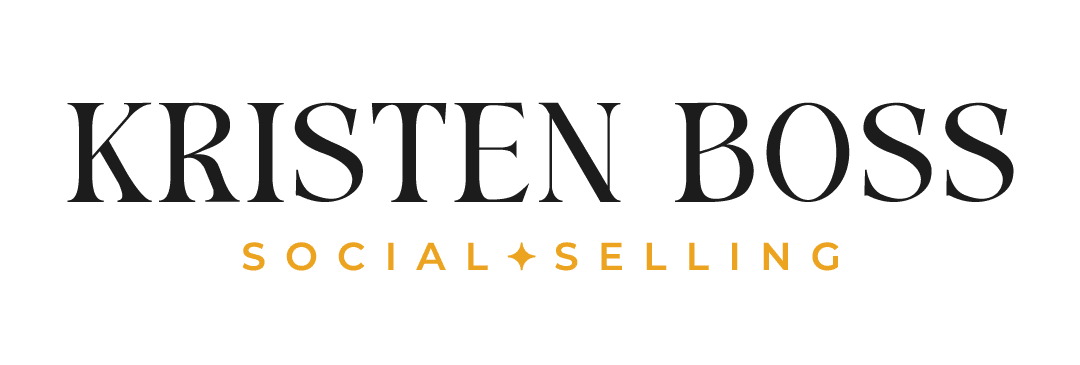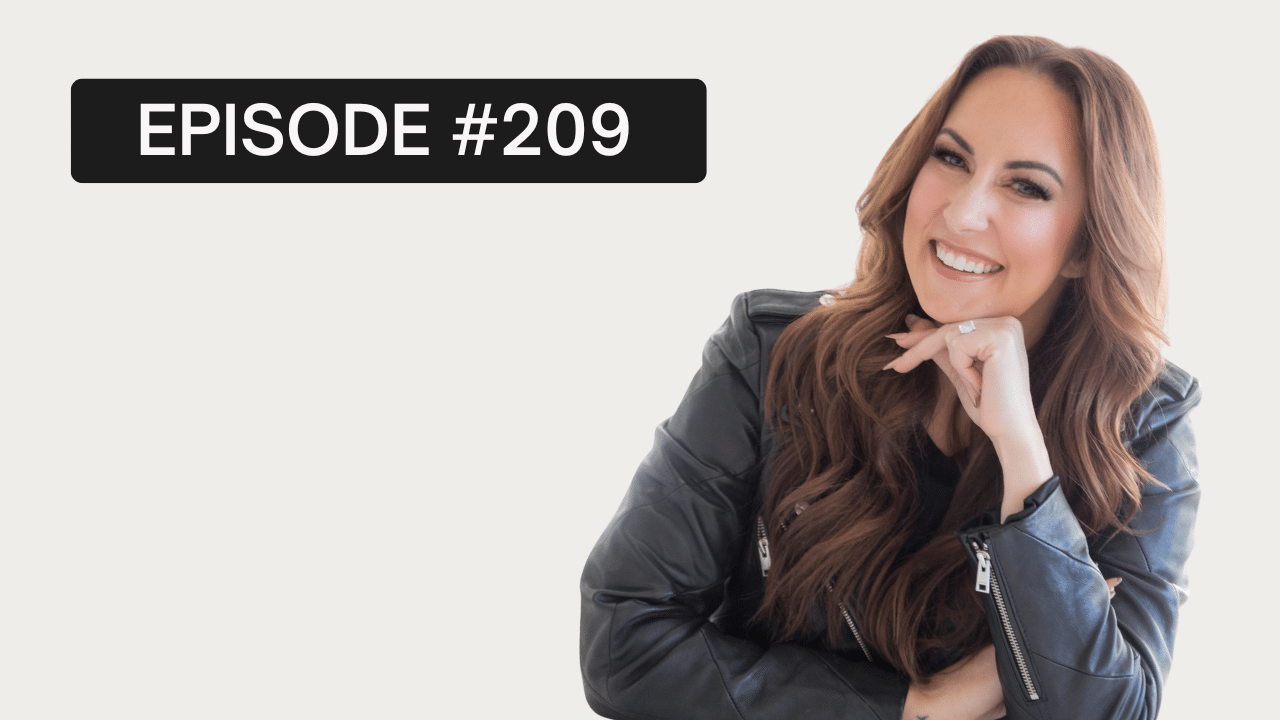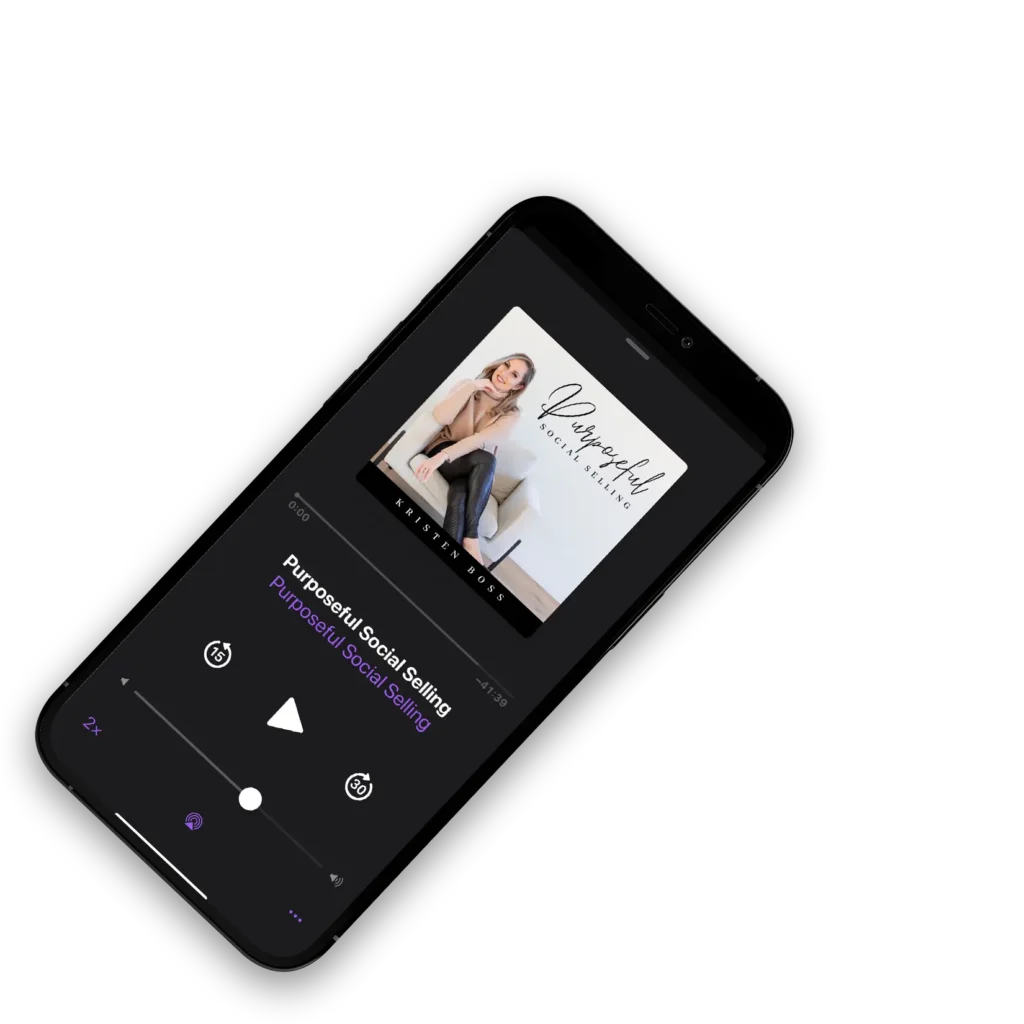If you have been an entrepreneur for any length of time or even thought about becoming an entrepreneur, you are most likely familiar with the idea of self sabotage. Self sabotage refers to the patterns of behavior and thinking that hold us back from achieving our full potential as entrepreneurs.
Kristen dives into four key aspects of self sabotage, equipping you with practical insights to overcome these hurdles and thrive on your entrepreneurial path:
In this episode, you will learn:
- How self sabotage can manifest in various ways, and we’ll explore the three most prevalent types that entrepreneurs often encounter.
- Practical techniques and self-reflection exercises that will empower you to identify self-sabotaging thoughts and behavior
- Understand deeper into the roots of self sabotage, and explore the triggers that activate these counterproductive patterns.
- Common lies that undermine your confidence and prevent you from taking bold steps in your entrepreneurial journey.
By cultivating personal awareness and dissipating the lies that hold you back, you’ll unlock your true potential and create a path to sustainable success as an entrepreneur.
Discover the power of reaching your ideal audience effortlessly with The Audience Accelerator‘ a game-changing 30-Day content strategy plan that will revolutionize your online presence through targeted marketing strategies and expert guidance.
Introducing the Social Selling Leadership School: A 12-week Advanced Leadership Certification program for Network Marketers. This program was designed to give you everything you need to be a confident and transformational coach for the people you serve and help your team get massive results. This is the ONLY Coaching Certification program built specifically for the social selling market. Find out more and join the waitlist here!.
Thanks for listening! Do you have a question about network marketing? Kristen can help! Drop your question here, and she just might answer it live on the podcast: https:/Kristenboss.com/question
Connect with Kristen:
If you’re ready to learn the simple process of running your social selling business online, you have to check out Kristen’s live group coaching program! The Social Selling Academy: www.thesocialsellingacademy.com
Transcript for Episode #173: RE-AIR Sneaky Types of Self Sabotage
Kristen Boss (00:19): You are listening to the Kristen Boss Podcast. I’m your host, Kristen Boss. As a best-selling author and performance coach, I’m on a mission to share about sustainable and purposeful approaches to both business and life. Each week I bring relevant topics that I believe are necessary to create a life of purpose, significance and meaning. Entrepreneurship is about so much more than growing your bottom line. It’s about who you are becoming in the process and building a life that is truly extraordinary. Entrepreneurship is really just the beginning.
Kristen Boss (00:57): Hey, hey. Welcome back to another episode. I am just pumped. I think I’m just going to say that about every episode I am just pumped about what I’m going to talk to you guys about today because I believe it is probably the biggest topic that comes up for entrepreneurs and business owners, especially in the clients I coach and in my community, and we’re all familiar with it. If you’ve been an entrepreneur for any length of time, heck, even if you’re thinking about becoming one, I guarantee that you have heard about sabotage and you’re likely very familiar with the idea concept or maybe even your behaviors of self-sabotage. I believe that having self-awareness in our business is one of the best assets that we can have about ourselves is really learning to become more self-aware. And one of the most important areas that we can learn on being self-aware, I believe, is in our personal areas where we tend to self-sabotage.
Kristen Boss (02:00): And it’s happened. It’s happened to me, it happens to all of my clients. We all have our self-sabotage go-to. You have a signature sabotage pattern. So I’m going to talk about the three most common types of self-sabotage and I’m going to talk about how to identify it, the triggers of sabotage, the lies in sabotage, and what you can do to get out of that self-sabotage behavior behavior. So if you’re ready, let’s get to it. All right, so the three most common types of sabotage, let’s start with the first one. I’m going to call this the researcher, the prepper prepper researcher. This is when you are in the, I don’t know enough phase. You get into analysis paralysis, you are hiding behind. I need to learn more. I don’t feel like I know enough. I got to research this. Do more market research here, and you’re hiding behind the books, the reading, the learning, and I know people that are stuck in learning forever.
Kristen Boss (03:14): I’m also going to call this the re researcher is also the consumer. They’re the content consumer. They keep porting content. They have a library full of free downloads courses. It’s just never ending. Just I’m going to listen to one more podcast. Maybe you, you’re doing all the team training. They’re at all the calls, just information, information, information overload. And the reason behind that is that it’s a self-confidence issue. It’s researching to feel more confident about yourself because you feel like I don’t know enough to go out and make a difference. But here’s the problem with that is it gives you a false sense of productivity because in your mind you think, well, I’m doing the research, I’m learning the things, I’m getting better. But here’s the thing, sitting around listening to podcasts, taking those courses and reading all the freebies isn’t making you money. And last I checked, you likely decided to become a business owner and a successful business owner.
Kristen Boss (04:24): And a successful business owner makes great money. You’re in this to have some financial freedom and time freedom. You hiding behind books and podcasts and videos and trainings all day long isn’t making you money. Actually, it’s costing you money. It’s costing you opportunity. With this whole consumer consuming more knowledge and I need to prepare more. It only I find that we move into this research overthinking mode because we’re afraid to take action. And oftentimes it’s because we’re afraid to fail. We’re afraid to do something wrong. So we think by gaining knowledge, it’s going to somehow prevent or minimize the risk of failure. That’s just not true. You cannot, let me tell you something. In this journey, there is no such thing as avoiding risk or failure. I mean, you could avoid risk and failure, but you’re not going to get anywhere if you’ve been hiding from risk and failure.
Kristen Boss (05:27): I want to ask you, how far has your business moved? It’s not going to move far if you’re hiding. We learn best from failure. But here’s the thing. Okay, so you’re in this, I need to research more, do more because you’re afraid. You’re afraid of making the wrong choice or misstepping. But here’s the problem. Continuing to do your research builds a false sense of confidence, and you’re going to learn that it never is going to feel like enough to take action to move past your fear barrier. And it’s almost like the more knowledge you acquire, the more you realize how much more knowledge is out there for you to acquire. And then it almost keeps you in this cycle of, I learned something new. Oh, because I learned something new. It just goes to show I don’t know everything and now I need to learn more because I’m still not ready. I think saying in the research cycle is it will keep you there for a long time. Is that you? That’s one type. That’s one type. And I’m going to talk a little bit more once I kind of unpack all these, but that was, that’s type one, the researcher, the knowledge consumer getting very caught up in, I just need to learn a little bit more. The second one is, I’m going to call it the perfectionist.
Kristen Boss (06:50): This one I feel like I see maybe the most of is I feel like it’s a socially acceptable form of sabotage and maybe the sneakiest form because we can hide it behind the idea of, well, we just want excellence, but just with research, there’s, we’re always learning with perfection. There’s no such thing, and who decides when it’s perfect? And when you’re thinking about like, well, it’s not perfect yet. Well, who are you trying to please? You or your audience and who in your audience decides if it’s perfect or not? Your audience may have thought it was amazing three versions ago, two versions ago, but so all consuming in your mind, getting it just right. And I love this saying, you don’t have to get it right, you just have to get it going, get it going. So are you the perfectionist overthinking everything it gets you in perfection is you’re perfectionist with When you have self-doubt over analysis, para analysis, paralysis, and it’s just never good enough, you’re always beating yourself up.
Kristen Boss (08:14): It’s frustrating for you and then you get so exhausted that sometimes nothing gets put out. I know this is huge. This is probably the biggest thing with entrepreneurs and their content writing. They get so stuck in like, is it right? I don’t know. And they spend an hour crafting one post and then they get so frustrated that they just end up not posting anything and walking away feeling defeated. That’s how perfection can really stop you from having the progress and results you want because you’re not putting anything out there because it never feels like it’s good enough. It never reaches the standard. Also, I think perfection is the standard’s always changing depending on your mood that day.
Kristen Boss (08:58): But again, I believe perfection is what we do to avoid failure. Just like it’s all about avoiding failure, which is why we go on research more. So I can avoid failure if I learn enough when I go out there, the likelihood of me going out there and failing is less just like, well, if I do it really perfectly, then I’m not going to fail when we all just have to realize it’s okay to fail. We learned far more in our failures than we do in our successes. And I know that’s hard and we’ll, I’m going to revisit that more in a little bit here. Okay, the third, we’ll move on to the third type of sabotage. Sneaky sabotage is what I’m going to call productive procrastination. We all know about procrastination. We all know when we put on the Netflix and we’re like, oh, get to it.
Kristen Boss (09:44): Wait until the last minute, oh, get to it. Or I’m going to go do my laundry. I can’t focus on my work unless my laundry’s done. Oh, you know what I should work on? And suddenly I know you guys have had this happen is where you have this goal where you’re going to sit down and go do something, and all of a sudden, as soon as you sit down to do it, a list of all those things you feel like are more important or you need to get done, come up and you feel a sense of urgency to go and do those things instead. Like, oh, I’m going to do with laundry. I’m going to prep dinner. I should go and reorganize my closet. Oh, you know what sounds good is, oh, you know what? I think there’s an oil change for my car. And that’s actually I, that’s more of buffering.
Kristen Boss (10:25): That’s to avoid what we know that needs to be done. That’s one type of productive procrastination where you’re productive in something else besides your work because you’re buffering because you’re afraid to do the thing that you maybe don’t want to do. The other form of productive procrastination is actually productive procrastination in your work. Man, say that word 10 times productive procrastination real fast. Nope, but listen, okay, the productive procrastination in your work looks like this. And let me know if this is you. Logo design, website design. This is especially say this in newer business owners where they get very caught up in like, well, I’m going to design my logo and pick my colors and my fonts and I got to have my website. I’m going to decorate my office. Well, I want, if I’m going to do Zoom videos, I want to make sure that it looks pretty behind my zoom when people see it.
Kristen Boss (11:24): So I’m, I’m going to decorate my office. And another form is when we prioritize low priority tasks in order to avoid our high priority tasks. So if there’s that email that customer follow up that needs to be done, that’s super high priority and you’re hiding behind scrolling social media or going and liking a couple things or checking your email and just kind of hanging out in there, that’s low priority task to avoid a high priority task. And the thing with productive procrastination is it gives us the false sense of security that we’re working. We’re busy, look at what I’m doing, but it’s actually not the work that gives us the results we want. We’re not being productive in the very thing that moves the needle forward in our business to give us the outcome and the results that we actually say we want. So those are the three types, the perfectionist, the researcher, and the productive procrastinator.
Kristen Boss (12:21): I’m sure there’s more, but those are the top three I see most. So I want to kind of dig into these a little bit more on how you can overcome your, we all have one. Maybe you kind of vacillate between one of the three, but you might have a go-to. So I’m going to give some tips and strategies to move through each form and how you can overcome each form of sabotage. So well go in the same order as we started with. So the researcher, okay, that’s again the idea that the more you research, the more you’ll feel prepared. The more you feel prepared, the less likely the less scary you hope it will be to go out and take action. And I feel like the researcher is always on this quest for clarity, and I feel I have this saying that I tell people, I’m like, clarity is often a crutch to not take action. I see a lot of business owners that are like, well, I just need to get some clarity before I take a step. And they get stuck in this place of searching for clarity forever.
Kristen Boss (13:36): That’s straight out of the sandlot. Where are my 1990 kids? But yeah, forever, they’re stuck in this search for clarity. I’m going to tell you a secret. Clarity is a gift to the action taker. Clarity comes to us the best and fastest when we are taking action. Just sit with that. You get the most clarity when you’re taking action and action or experience teaches us far more or gives us far more clarity than research does on any day. But I also want to talk to the person that’s caught in this perpetual state of learning. I think that’s a wonderful quality. People that are always in a state of learning, good. But you need to be learning and taking action. You need to act on what you are learning. There’s researching and then there’s field testing. You need to be field testing. You need to be in implementing the very things you’re learning.
Kristen Boss (14:45): Don’t get caught in this idea of you’re going to be learning forever. That’s part of being an entrepreneur. It means we’re always in a constant state of learning. And the true art of being an entrepreneur is when we’re forging ahead, sharing our lessons that we’ve learned from taking action and sharing those past lessons while we continue to take on new lessons. And the best lessons we teach are the lessons we teach from experience. I can sit here and read a psychology article or something, but telling you a story from personal experience is going to resonate more with you because experience always trumps research, especially for the entrepreneur.
Kristen Boss (15:34): So I believe in this avoiding failure and wanting to research for clarity. Clarity is a false hear this. Clarity is a false sense of confidence. A false sense of confidence. You’re not actually looking for clarity, friend. You’re looking for bravery. You’re looking for confidence. And you know what you want to know how confidence comes to us. Confidence happens when we take action, even when we’re afraid because at the end of that, we look at ourselves and we’re like, oh my gosh, I did the thing. It terrified me. I thought I was going to die and I didn’t. Here I am. Confidence comes when we do things in spite of our fear, even when we are afraid. You want to build your confidence as an entrepreneur, be an action taker. I believe staying in a perpetual state of acquiring knowledge actually minimizes or gives you a false sense of confidence.
Kristen Boss (16:31): I’m actually going to go so far as to say I think it feeds your ego. I think it feeds your pride. And pride is a dangerous thing for an entrepreneur. We don’t need proud, arrogant knowledge puffed up entrepreneurs. We need humble action takers of those who did things afraid and were willing to share their lessons. Confidence, real humble, service oriented confidence so that you end up using to bless and serve others comes from you being an action taker. You sitting behind books and reading and researching, be careful because it might be about feeding your ego and you don’t want that because we’re about service. So let me tell you something. When you’re stuck in that place where you’re constantly looking for clarity and you don’t know how to move forward and you’re researching, researching, let me tell you this research just enough to take the next right step. I think oftentimes we research hoping that we’re going to get the full picture, that we’re going to get 20, 20 steps ahead. And then it’s not like that we learn from each forward step we take and realizing just you have to trust the process. We’re not promised the full picture research enough to take the next right step and commit to doing it even when you’re afraid.
Kristen Boss (18:03): Choose to be adaptable when you’re taking action and you’re moving along, being adaptable means you’re willing to pivot, adjust the course, but it keeps you your forward, your forward motion. So tell yourself when you’re caught in that like, Ooh, I want to research, sit with and ask yourself, what is it I’m really avoiding right now? Is it action, failure, confidence? Is this a confidence issue, a fear issue? What am I avoiding here? But just know if you’re seeking clarity, tell yourself I’m going to get all the clarity I need when I start taking action. And this is true for me in everything. Okay? An example of that is when I was a hairstylist way back in the day and I was at the top cosmetology school in the country, and me just tell you, I thought I was a big deal. I really did. I thought I was going to graduate.
Kristen Boss (19:04): I’m like, yeah, put me in that chair charging. I’m a celebrity clientele. I just was so freaking full of myself because again, I was like, look at my education, look at my research, look at all these things. And I’ll never forget, it was probably 90 days before we graduated and they sat us down and they’re like, you’re going to graduate from here and sweep hair and shampoo, hair and shadow under somebody and probably be an assistant for a year or two years. So I was like, excuse me. It felt like an insult to my knowledge. And oh, it totally humbled me because that, again, I thought I was a hotshot. And I get out and oh, boy, did I get my butt handed to me that that could be an episode for another time. But I trained under the top stylist in LA and he was amazing, but oh man, he cracked the whip.
Kristen Boss (19:53): And that’s when I learned, I thought I learned in cosmetology school. And then there was actually being in a salon with unpredictable outcomes and all these personalities and all these moving parts and all these things that the books and the classroom could not prepare me for. And I remember after I humbled myself, I realized, oh, thank God they didn’t put me in a chair. I would’ve wrecked myself. So that’s when I realized how valuable experience was, how valuable taking action and implementing in the real world, the things I had learned in theory, and it, it ended up being phenomenal. And there’s still things I take from that that boss told me, and I’ll probably, maybe I’ll do an episode on the things that being in a celebrity hair world taught me in the service and business world, because it’s a ton. So that’s just to say, that’s when I learned, oh, I can sit there and feel really confident in my knowledge, but nothing’s going to grow my skillset like experience and having some hiccups and making mistakes.
Kristen Boss (21:04): Because let me just tell you, when I made a mistake in the real world, cosmetology school was like, oh, you made a mistake. Okay, it’s fine. That’s what we’re here for. It’s to protect you. But in the real world, you make a mistake. I learned once and that was it. I was like, okay, never making that mistake again. It’s the same in the entrepreneurial world. Your failures are gifts. And can you imagine how we would show up if we actually believed all failures were gifts? Amazing, right? Let’s talk about the perfectionist now, what to do with the perfectionist. I joke, I love my husband. He’s an Enneagram one, and we’re always joking about perfectionism and reformers, and I’m in Enneagram three, and I always tease him, but I’ve realized, and I tell him this, I say, I realize that he has a real desire to do things with excellence, and I think that is amazing. But you can’t do things with excellence if you don’t actually go out and do something, right? So it’s okay to have a high standard, but if your standard is so high where it’s crippling you from taking any action, that is your indicator to know, oh, right now, because it’s not allowing me to take any action, it’s not allowing me to move the needle forward. Your goal is not perfection. The goal needs to be progress. And I actually believe perfection is the prettiest form of self-sabotage. It looks pretty because we want it to be done.
Kristen Boss (22:39): So if the goal isn’t perfection, what is the goal? The goal is progress. The goal is moving forward. And I’m going to actually tell you a word I think you’re really going to like, if you deal with perfectionism, take action and then let refinement be your mission. Practice the art of refinement. That means you put something out there and then you evaluate it, look at it and ask yourself, how can I make this even better? But the point is, something is out there. You’re learning, you’re getting feedback, and you’re figuring out, okay, now how do I refine this to make it better and better and better? Perfection doesn’t happen on the first try. Perfection is an ongoing practice of refinement. And refinement is an ongoing pursuit of excellence by improving on the actions we take. Whoa, somebody put it on a t-shirt. But seriously, I’m going to say that one more time because I just, I’m sitting with them like, man, this is good. Refinement is an ongoing pursuit of excellence by improving on the actions we take. So my friend that struggles with perfectionism, aim for progress and the art of refinement, and I think you’ll find joy in that and you’re going to get the needle moving forward. You have to move forward.
Kristen Boss (24:17): And I feel, and with the productive procrastinator, we’ll move to that third one. Lemme just tell you something. When I started this business, my goal was to just start moving, to make money and move the needle forward. And I constantly had to remind myself, Kristen, a logo does not make you money. You designing your website and spending 12 hours on a website when you could be spending 12 hours making new, meaningful connections, telling people what you do, how you can serve them, getting on calls with them, that makes money. Me tinkering on a WordPress or Wix, or Lord, help me Kajabi for 15 hours costs money didn’t make me money. So what helped me, because I, I’ve realized that I think I have that propensity, I find I can be one any of these, but I just remember in this particular journey, because it’s more fresh for me than others, it was really easy to get caught in logo design and font types and all these things.
Kristen Boss (25:26): And the students that come to me now, I have to remind them, I’ve even told them, I’m like, man, I wish you could see my first website. Feel so much better about yourself. I wish you could see how I started because I committed to just get out there and serving, and I knew eventually I would have the time and the resources because I was making profit to outsource web design and branding and photography and all those things. But profit is first. You need to have that mentality with your business, that mindset with your business being like, what makes me actual profit?
Kristen Boss (26:09): If it doesn’t make you profit, then if you’re hiding behind the things that aren’t making you pro profit, that’s productive, productive procrastination. So start, just start and then actually make those fun things like logo and photography session and website, make those rewards for hitting milestones in your business instead of a precursor to feeling like you have a valid business. Oh yeah. If you’re thinking like the logo design and the website design and all those things is what makes your valid, your business valid, that’s not true. You make your business valid. You decide that your business is valid, how you show up and how you serve and you helping people makes you valid. Trust me, I know coaches and other social sell, like people that are selling products that have websites and it looks valid, but they’re not making any money because they spent all their time making their business look valid, when in fact, because they’re not making any money, their business isn’t valid because they’re actually not showing up and doing their business.
Kristen Boss (27:31): So if you’re in that productive procrastination in your business, ID identify your money making activities and do those start. If you’re doing the productive procrastination outside of your work where you’re buffering and you’re like, I’m going to go do laundry, I’m going to, oh, I think I’m going to paint my house, paint my room. What sounds good is meal prepping. Ask yourself what you’re afraid of. And this is where I call have a low barrier entry. So if you’re afraid of getting started with to work, you feel overwhelmed, start with a small task. Just move into and set a timer. This will help you. If your brain’s freaking out and you’re avoiding it, just say, set a timer for 15 minutes and start with something that doesn’t take a lot of your creative energy. So if that’s opening up an email, set a timer, start the email and just say, okay, 15 minutes, I’m just going to start my inbox.
Kristen Boss (28:24): And here’s the thing. Objects in motion tend to stay in motion, and sure enough, you’re going to know that timer’s going to pass by, and suddenly now you’re in flow. Now you have, what just happened was a low barrier entry. There was less resistance because you didn’t have fear going to your mailbox or checking or checking your inbox, but it started you getting into motion. And then you work your way into your high energy activities that require your creative, happy energy. So if you need an on-ramp, do it, but stop avoiding it. Just set a timer. Set a timer. So here’s what, here’s my challenge for you is after this episode, I really want you to ask yourself, this is where I’m going to help you with your self-awareness so that you can identify what your particular go-to of self-sabotage is. But there’s usually a trigger for your self-sabotage. And I think it’s important for you to say, okay, what is my self-sabotage coping mechanism? What’s my favorite? And then asking yourself, what is your trigger that causes your self-sabotage? Is it overwhelm? Is it fear? Is it fear of failure? Is it your negative self-Talk? What your trigger? And then ask yourself from there, what is my truth?
Kristen Boss (29:48): So if overwhelm is your trigger, I’m so overwhelmed, there’s not enough time, I don’t know how I’m going to get to this. That’s where you sit with what is my truth? I make time. I can find 15 minutes. I always get more done than I think I’m going to get done. You have to figure out, what is my trigger? What is my truth? If it’s perfectionism being like, oh, it’s never going to be right, or that’s the truth is I aim for progress and refinement. There’s no such thing as perfectionism, right? So identify what’s your mechanism of self-sabotage? What’s your trigger? What’s your truth?
Kristen Boss (30:28): And when you become more self-aware, you’re going to identify and catch more quickly when you are starting to self-sabotage, and you’ll, you’ll catch it more quickly and you’ll say, oh, I’m totally self-sabotaging right now. And then you’re going to move into this process I just taught. We’re asking yourself, what’s the trigger? What’s the truth? And then what can I do about it? And switching the narrative of each that I walked through. So friends, aim for progress today, move the needle forward. Clarity comes by taking action. There’s no such thing as perfection. Being an entrepreneur is constantly learning. We’re in a constant state of learning. We’re always going to be learning, and people are waiting for you to show up and serve them today. So get out of your head and get out there and start serving because there are people waiting for you. We’ll catch you guys next time. That’s a wrap for today’s episode. Listen, if you love what you heard here today, I would love for you to leave a real quick rating and a review. This helps the show get discovered by new people. Be sure to take a screenshot of today’s episode and shout us out on Instagram. We’ll shout you right back out. If you’d like to find additional resources or discover how to work with me, head to kristenboss.com.










